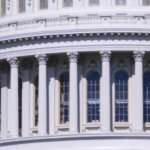VA Final Rule Delayed One Year
Hot off the press! The Department of Veteran’s Affairs has announced a one year delay of the VA Final Rule. This delay pushes implementation of the final rule to February of 2025.
We want to thank all of our AAA members, partner organizations, and legislative champions for their collaborative efforts and commitment to securing this critical delay.
Please see the following press release from the Office of Senator Tester.
Following Tester Efforts, VA Takes Action to Avoid Potential Reduction in Air and Ground Transportation Services
VA delays rule that could have resulted in severe reductions in access to emergency ground and air transportation services in Montana
(Big Sandy, Mont.) – Following sustained efforts from U.S. Senator Jon Tester to protect rural veterans’ access to lifesaving emergency medical transportation services, the Department of Veterans Affairs is delaying a rule to change reimbursement rates for special mode transportation, including air and ground ambulances. This delay will give VA more time to work with stakeholders and Congress to implement the rule in a way that would ensure access and availability of emergency transportation to veterans and civilians, especially in rural America.
“The availability of emergency air and ground transportation services in Montana and rural America can be the difference between life and death,” said Tester, Chairman of the Senate Veterans’ Affairs Committee. “VA’s hasty implementation of its rate change for these services could have been the final straw for providers in rural America, and I’m glad to see VA answering my call and taking steps to fix this reimbursement issue. VA still has a lot more work to do, and I’ll continue pushing my VA Emergency Transportation Access Act to ensure VA gets this rule right for veterans and anyone who calls rural America home.”
VA’s rule was set to go into effect in February 2024, despite significant opposition from Tester, transportation providers, and Veteran Service Organizations. Now, VA is committing to delaying the rule’s effective date until February 2025, which would give the Department more time to work with providers to ensure the rule will not negatively impact their services and ability to serve veterans, especially those in rural and hard-to-reach areas. The previous implementation timeline of rate reductions could have resulted in emergency transportation providers severely reducing services, closing bases, or even billing veterans for the remainder of their costs in order to shoulder the financial impacts of this change.
Tester has led the bipartisan charge to push back on the Biden Administration’s proposed rule change and protect Montana veterans’ access to emergency medical transportation services since day one. In September 2022, he wrote to VA Secretary Denis McDonough to express his concerns with VA’s rule, and in February of this year, he called on the Secretary again to delay this rule. This September, he introduced the bipartisan VA Emergency Transportation Access Act to bar VA from reducing rates of pay and reimbursement for special mode transportation providers, including ground and air ambulances, unless the Department meets certain requirements that ensure rate changes will not reduce veterans’ access to this essential service.
The Senator also recently secured a bipartisan amendment to prohibit VA from implementing this rule in fiscal year 2024 to a key Senate bill that passed earlier this month.
Tester’s efforts have been applauded by emergency medical service leaders in Montana and across the nation. Earlier this month, the Senator was awarded Legislator of the Year by the American Ambulance Association for his work to push back on VA’s rule.

